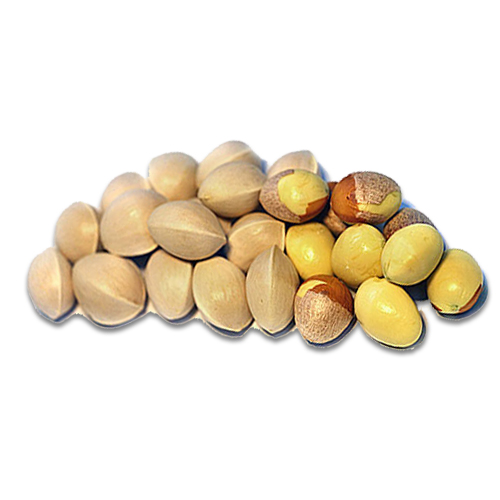Faba Bean Nutritional values
Faba Beans Growth and Cultivation Faba bean or broad bean is grown worldwide under different…

Ginko Nuts
Ginko nut is the seed of the Ginko herb with scientific name Ginko biloba. It is also known as the maidenhair tree. The herb is fairly similar to the fossils dating back 270 million years. It is a native species of China, and was widely cultivated and introduced early to the human history. The Ginko nuts find their wide use in traditional medicinal practices and as a source of food.
This traditional Chinese herb is very helpful in curing coughs and combating aging, thus naming the Ginko nuts also as anti-aging nuts. These nuts are widely popular even in Japan and Korea.The Ginko nut comprises of an outer fleshy seed coat, middle sclerotin seed coat, internal membranous seed coat and the kernel.
Uses Of Ginko Nut
The preparation methods for Ginko nuts include some of the best options such as frying, roasting, boiling, accessories to main ingredients, preserved fruit, can, beverage, liquor etc. To use the nuts, simply soak the kernels in warm water to get rid off the skin and then cook till a delicate green shade appears. The preservation method is easy and convenient if the nuts are kept unshelled. The nuts are rich in starch content and low on fats with a texture similar to that of soya bean. They have a mild sweet flavour and are thus used in stuffing, soups, desserts, meat, poultry, and vegetarian dishes as well. Soup and porridge are two popular forms to consume as they are easy to prepare. A regular dosage of the nuts is 6-10 grams or 5 to 10 pieces.
Extraction Of Ginko Nuts
The Ginko trees are considered sacred in China and the seeds are mostly available canned, sold as “White Nuts”, and are found in many Asian food stores in the west, where they are also sold dried, shelled and canned in brine. These nuts are found in the groceries year-round in various countries across the globe. According to the Traditional Chinese Medicine (TCM), Ginko nuts are sweet, bitter, puckery, neutral and with mild toxicity in nature.
Types Of Ginko Nuts
There are two common varieties of ginko.
Health Benefits of Ginko Nut
The herbal cuisine made of Ginko nuts is good for all, especially weak children and the elderly people. Regular long-term consumption helps nourish skin, maintain youth, expand capillaries, improve metabolism, prompt healthy look, provide extra energy and give longer and healthier lives. This traditional Chinese herb is very helpful in curing coughs and combating aging, thus naming the Ginko nuts also as anti-aging nuts. The Ginko nuts find their wide use in traditional medicinal practices and as a source of food.
Harmful Effects Of Ginko Nut
Despite all the benefits provided by the Ginko nuts, there are a handful of drawbacks associated with them in the form of health hazards. Over dosage of these nuts may lead to Ginko poisoning. People who are allergic to mangoes and cashews should not consume these nuts. The Ginko fruit pulp and juice can cause irritation to skin and mucous membranes as it contains the same plant chemical that causes poison oak, ivy and sumac. Thus, it is not advisable to eat Ginko fruits and raw Ginko nuts.
Too much of anything is good for nothing is the only passage should be comparatively said before completing this topic. Eat healthy and live long.